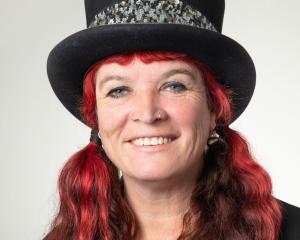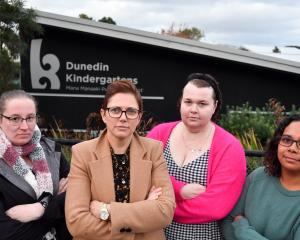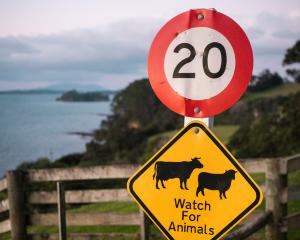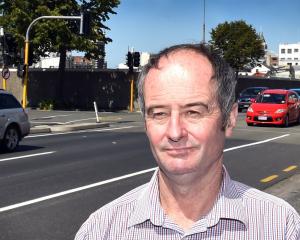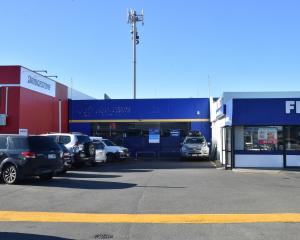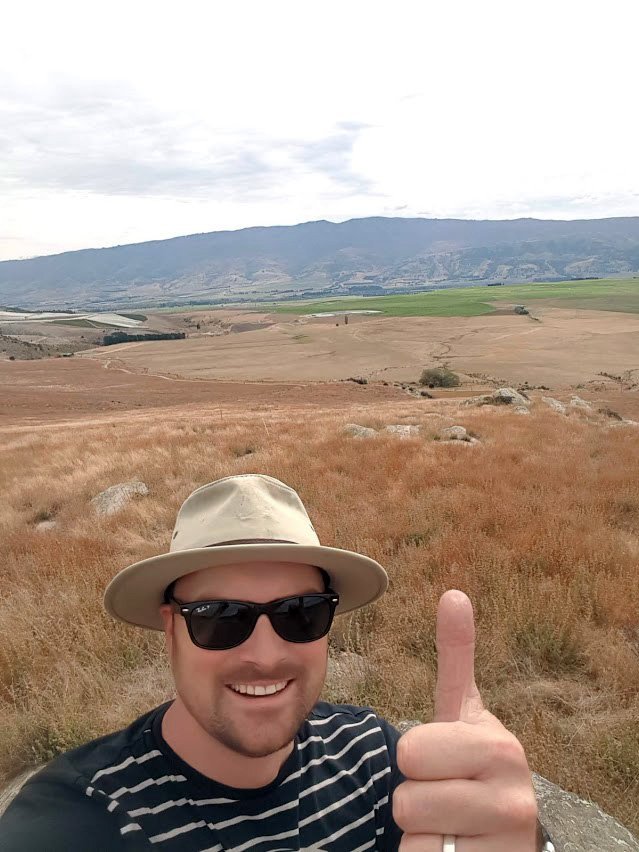
It's a company that prides itself on being ahead of the weather.
About 2000 people throughout the country wake every morning to a forecast from Metris which provides comprehensive weather data tailored to their needs.
With a 20-year career providing sustainability advice to food and fibre companies, Dunedin man Justin Courtney is enjoying helping growers, horticulturists and viticulturists to manage risks and cut waste from their businesses, all with the aim of producing quality food.
Metris was founded in 2000 by forecaster Howard Staines who did frost forecasts for fruit growers, viticulturists and horticulturists until his retirement in 2017.
That year, Dr Mark Bart approached Mr Courtney, a university friend, with an opportunity to buy the company with a small group of other shareholders.
For Mr Courtney, the former head of sustainability at Silver Fern Farms, becoming involved "just made really good sense". The growing awareness around how change in climate was managed tweaked his interest and it was also an opportunity to work in the horticulture sector, having been involved in the dairy, red meat and fibre industries.
The serious work of innovation and product development began the next year.
Metris was now a total weather risk service which provided consulting, daily weather and frost forecasting, including spray forecast, pest and disease risk, weather outlook and weather stations with real-time data.
"I like saying our growers are focused on growing better quality fruit, we are focused on giving them better quality data every day," Mr Courtney, who is the strategy and partnerships director said.
While viticulture had always been part of the business, increasingly Metris was working with those involved in cherry industry development and apple growing.
Revenue had grown about four times since 2017 but Metris was determined to keep a small team of four, providing a low-cost, accurate and timely service.
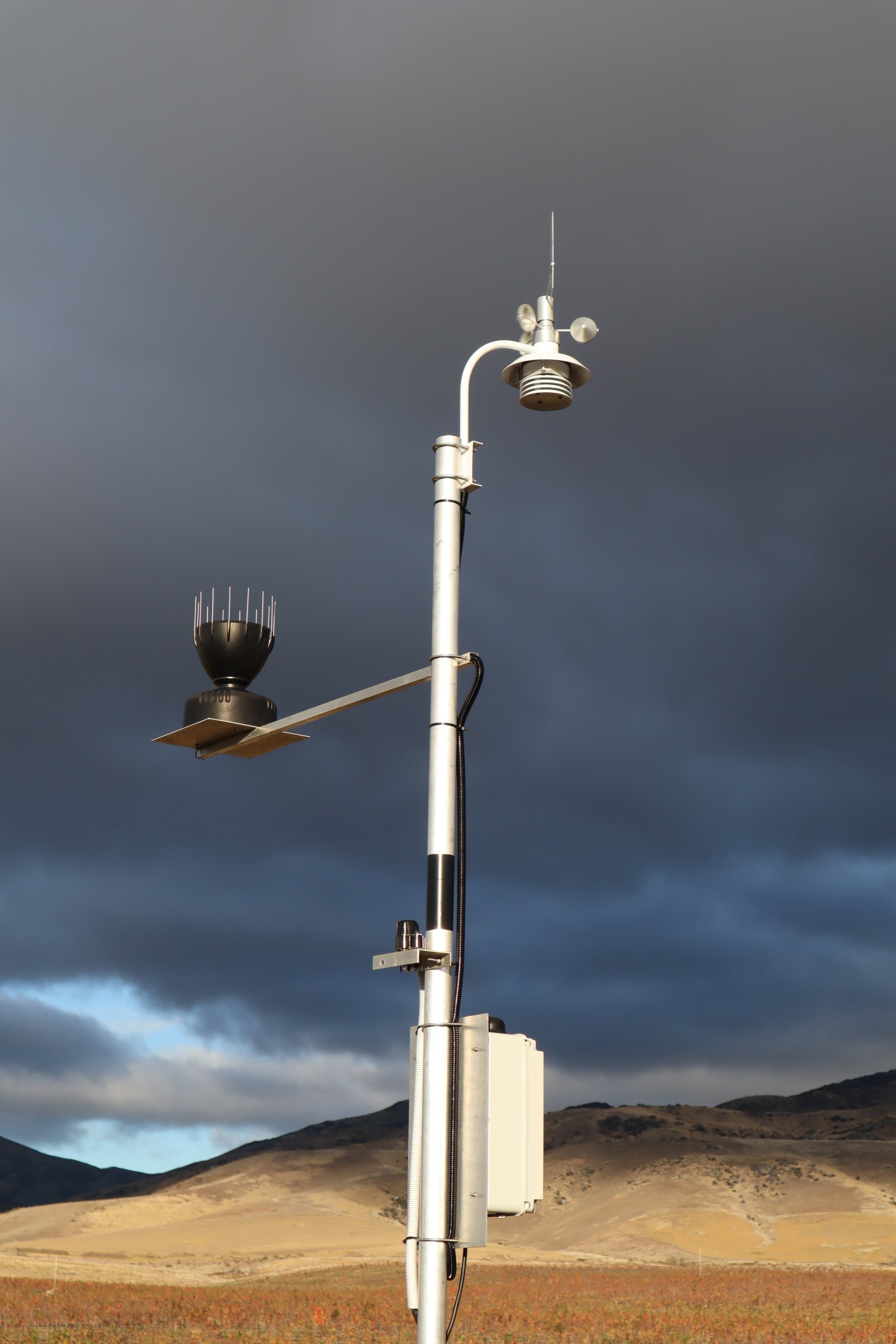
It was a lease model with hardware, maintenance and support included.
Metris was location specific and informed by a network of about 3000 weather sensors around the country.
It was understood to create the most detailed and accurate forecasts available in New Zealand due to the Weather Research and Forecasting (WRF) model, designed by Nasa.
Metris recently won the innovation award at the Napier Port primary sector awards, the second time it had received the acknowledgement.
The first time was for its in-orchard frost alarm service, this time it was for its spray forecast.
Spray was a huge cost to fruit growers and it could cost more than $50,000 per application for a large grower.
It was often the second or third biggest cost to growers after labour and interest charges.
Putting it on without wasting it was a big factor in decision making while society was also pushing back against spray and insisting on spray reduction, Mr Courtney said.
Urban areas were also encroaching on traditional growing areas and there were also Good Agricultural Practices guidelines with customers wanting assurance for the consumer.
There was high risk around not getting the spray window right, including insurance risk which was playing out globally.
Using hyper-local data, Metris provided very simple visual indicators which gave three day visibility around good, average and poor windows to spray, he said.
While their core client base was in Hawke's Bay, Metris also provided services from Kaikohe to Cromwell and demand was growing in Otago.
Customers ranged from large-scale multi nationals to independent family-owned operations which was "a really nice mix", Mr Courtney said.
It provided soil moisture monitoring in real-time and how that linked through to irrigation decisions which was a growing part of its business.
It also did some work in the construction sector, such as dust-risk modelling for infrastructure projects.
In the aftermath of Cyclone Gabrielle, Metris wanted to help its customers in that affected area to understand what weather conditions would be like in the longer-time.
Free packs were put together for directors and senior management looking at the likes of weather-related cost forecasts and trends to "help them get back on their feet" and to use as a tool in their governance processes to ensure they managed climate risk.
Consultancy services were also provided for people looking at how suitable land use was for weather conditions, particularly for the likes of farmers looking to add a horticultural or viticultural operation into their business.
Historical weather data could be provided to help inform orchard planning or layout of vineyard rows.
Mr Courtney said Dr Bart, who is the company’s chief executive, was experienced in delivering world-leading sensor networks to measure climate and air quality conditions.
An atmospheric chemist, he worked with some of the lead authors on the IPCC climate change report, his contribution being setting up sensor arrays in the Atacama Desert in Chile, Vancouver and Morocco, to provide insights into European weather patterns.
He also built sensors to put on aeroplanes to fly over the Andes.



